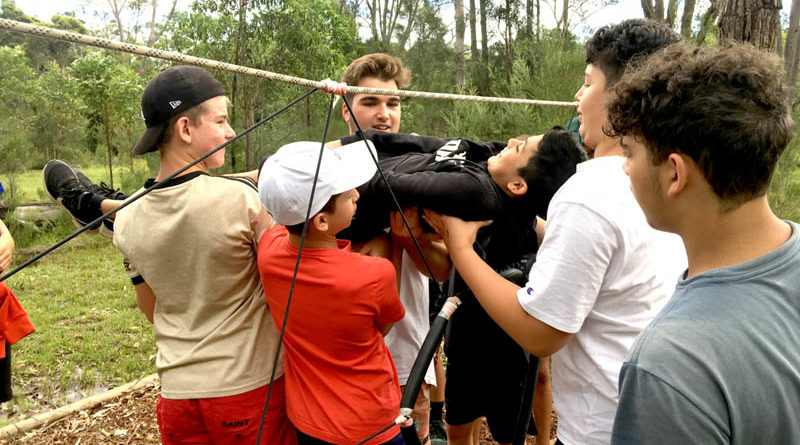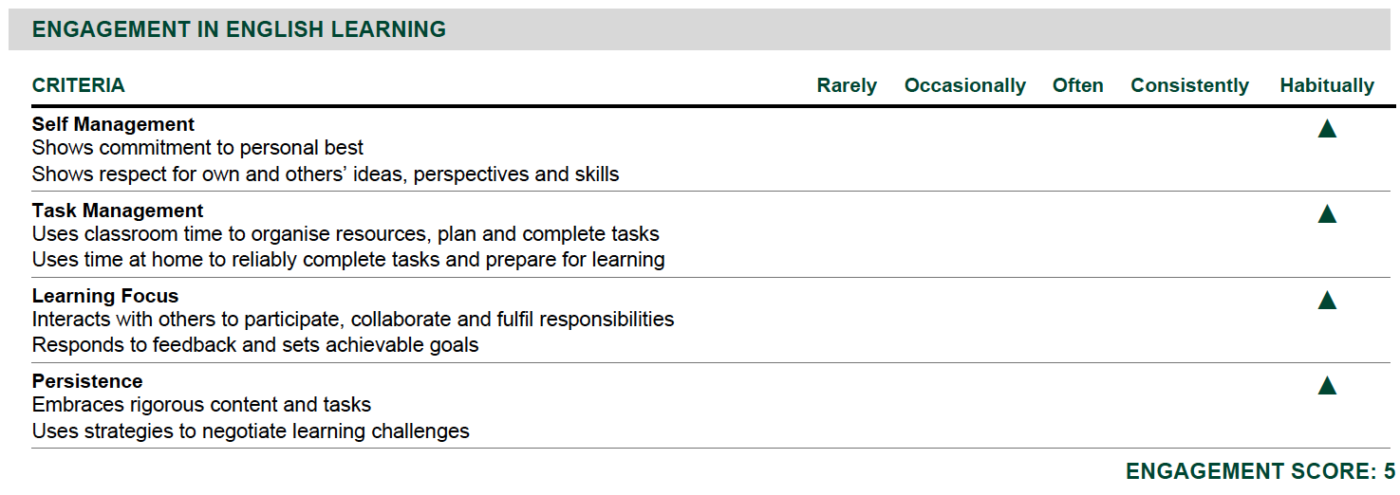Academic Focus: Self-Regulated Learners
One of the most useful pieces of information on secondary school academic reports is the feedback provided about a student’s self-management in a particular area of the Trinity curriculum. The first criteria determining a student’s engagement score in a subject, or in the House, Sport, Co-curricular contexts, is the extent to which he demonstrates commitment to his personal best and respect for his own and others’ perspectives. Sometimes termed ‘self-regulation’, this criterion is about the ability to manage one’s emotions and behaviour in ways that respect self, others and the opportunities for learning. Here’s an example of what this feedback looks like on the boys’ Semester Reports.
When we think of a ‘self-regulated person’, we might imagine a highly confident individual planning their day meticulously and executing every task with the utmost competence – perhaps we see them as inherently motivated or organised – just lucky to be born that way! In reality, self-management, or self-regulation of emotions and behaviours, is learned and open to improvement with practice.
At Trinity, we believe that the external environment can do a great deal to support students as they grow into habitual behaviours of self-management. They can be supported to manage the emotions that come with significant challenge – and persevere. They can be supported to reflect upon their current skills – and set goals to learn new skills. For this reason, we provide feedback about how they are going in managing and developing the kinds of behaviours we know are linked to academic confidence and success.
Research also tells us that traits such as self-regulation are domain specific: that is, self-regulated learning is not an absolute state, but is highly variable in time and dependent on context. Just because a student finds self-regulation behaviours very easy to demonstrate when learning Mathematics, doesn’t mean she will automatically bring that high level regulation to a different context – like Debating, or History, or musical performance; she might need a lot more support to commit to her best and persevere in these areas.
Professor Barry Zimmerman, an educational researcher at the City University of New York, was one of the early writers about how people regulate their attitudes and behaviours to maximise their learning opportunities. Zimmerman shifted to discourse about self-regulation to a purely internal motivational state, to a discussion about the way deliberate behaviours and the external environment can promote self-regulation. He notes that as students progress through high school, they are expected to take greater responsibility for their own learning – but that not all students step into this responsibility equally well. His research demonstrates that the greatest academic success occurs when teachers and students work together to support the self-management skills of goal-setting, planning and evaluating. Zimmerman’s work on self-regulated learning emphasises the need for all learners to develop their capacity to adjust thoughts and actions based on new challenges and feedback.
Trinity students have just passed the halfway point of the academic year; the stimulus of final assessments and examinations is still quite far away, but the motivational boost of a new start is also back in the past. Perhaps now is a good time to practice self-management skills by reflecting on 2021 academic journeys – so far. Here’s a useful protocol:
- What are some of the subjects or areas I have been able to demonstrate commitment to doing my personal best? What does this look like?
- What is one area in which I am struggling to regulate my emotions and behaviours– but in which I really want to improve?
- What have I done so far to improve my self-management? Has it worked?
- What is one thing I could do – before the end of Term 2 – to improve the way I feel about my learning in this subject?
- What is one more action I could undertake – before the end of Term 2 – to demonstrate my commitment to improvement?
Deborah Williams | Academic Dean

















